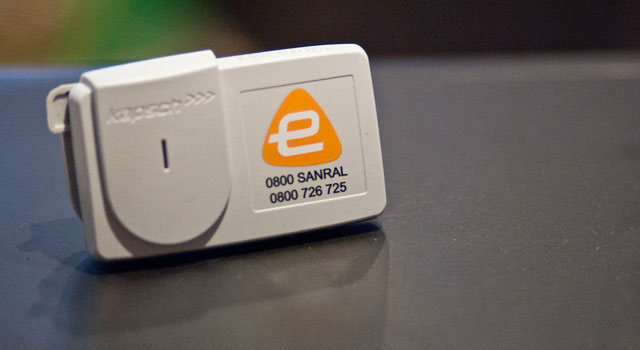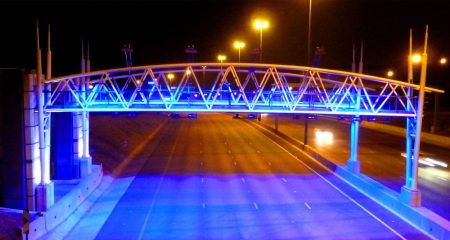
E-tolling of Gauteng freeways got the legal nod on Thursday when the high court in Pretoria on Thursday dismissed an application to have the project scrapped. “The application is dismissed,” Judge Louis Vorster said, reading out his judgment. “In my view the application cannot succeed.”
Vorster ruled that the Opposition to Urban Tolling Alliance (Outa), as the applicant, should pay the costs of roads agency Sanral, the transport department, national treasury, the MEC of roads and transport in Gauteng, the minister of water & environmental affairs and the director-general of the department.
“The applicants are ordered to pay jointly and severally the costs reserved by the constitutional court to the respondents who participated in that appeal before the constitutional court.”
He said the costs order included the cost of counsel.
After the judgment, Sanral CEO Nazir Alli was seen hugging his colleagues. He said he was pleased with the outcome. “We are not here to crook, we are not going to be shedding any kind of crocodile tears or anything of that sort,” he told reporters. “We are here to implement government policy. I would like all of us to turn around and respect the decision of the courts. It is unfortunate that Outa showed total disregard and disrespect for the decision of the constitutional court.”
He appealed to the media to report “correctly and truthfully” on the e-toll matter, saying there had been untruths, lies and half-truths published against Sanral. Alli urged people to buy e-tags.
Outa chairman Wayne Duvenhage shook his head after Voster made his judgment. “I think today’s judgment represents a sad day for South Africa’s democracy as it demonstrates government’s ability to railroad public engagement policy and thereby make decisions that are not in the best interest of society,” he said.
“The outcome also sends a clear message about the lack of importance of citizens’ input, and will have an input in society’s feeling powerless against the state, and its bulldozer tactics in driving its own agendas and policies.”
He said the decision would have an impact on South Africa’s global image. Outa was never opposed to society paying for infrastructure upgrades, Duvenhage said. Outa believed Sanral would never be ready to launch e-tolling. “We sincerely ask Sanral and government to reconsider their decision to toll our urban freeways,” Duvenhage said. “We now call on Gauteng motorists to not purchase e-tags, as legally they are not obliged to do so.”
Duvenhage said his legal team would study the judgment before deciding the way forward.
Director-general George Mahlalela said it was unclear when e-tolling would begin, saying the minister would make an announcement. “We are pleased with the judgment, we think that it closes a chapter and gives us an opportunity to move forward,” he said. “The minister will very soon announce, after all the submissions were made, the way forward. We are still working on the details.”
Vorster found that the Gauteng Improvement Freeway Project scheme was done lawfully. In September, the constitutional court overturned an interim order putting the Gauteng e-tolling project on hold. The constitutional court found the high court in Pretoria had not considered the separation of powers between the high court and the executive.
On 28 April, the high court granted the interdict to Outa, ruling that a full review needed to be carried out before e-tolling could be put into effect. The interdict prevented Sanral from levying or collecting e-tolls pending the outcome of the review. — Sapa




